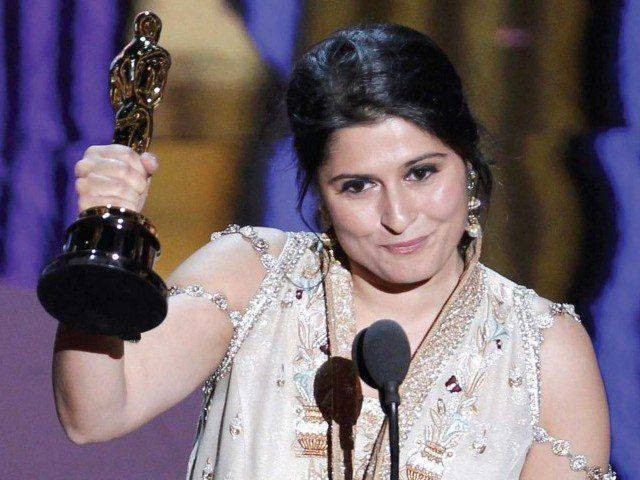Need to start making examples of those who commit honour killings: Sharmeen Obaid Chinoy
Chinoy says people won't think honour killings are a serious crime until people are sent to jail

Sharmeen Obaid-Chinoy. PHOTO: REUTERS
“A law has to be brought into place which acts as a deterrent. We need to start sending people to jail. We need to start making examples of them," Sharmeen told CNN’s Christiane Amanpour during a live podcast on Wednesday. "As long as people won’t go to jail for it, how will people think it’s a serious crime.”
Oscar-nominated film spurs Pakistan PM into action on honor killings. My interview w/ the director @sharmeenochinoy: https://t.co/KhJPsL8mbq
— Christiane Amanpour (@amanpour) February 25, 2016
Chinoy, whose documentary, 'A Girl in the River: The Price for Forgiveness' has been nominated for an Academy Award, revealed that according to the current law, few actually end up in jail after killing women in the name of honour.
Sharmeen Obaid hopes Oscar-nominated film will help end honour killings in Pakistan
“Right now as the law stands, when a father kills his daughter or a brother kills his sister the family can forgive. Wife can forgive the husband, the parents can forgive the son, and so very few people actually go to jail for honour killings in Pakistan," she said. "What that means is that in entire villages, towns and even cities people know of people who have killed women in their family and are walking scot-free, which gives off the signal that there is nothing wrong with killing women.”
The documentary follows the story of an 18-year-old girl, a rare survivor of an honour killing attempt, who falls in love and lives to tell the tale.
In response to Amanpour’s question about why she “keeps poking her lens where it’s least welcome,” Chinoy said she believed it was necessary that we talk about all issues that confront Pakistan, hoping her documentary will help bringing an end to the violent practice.
Sharmeen Obaid-Chinoy's documentary bags Oscar nomination
“I think it’s very important to shake the status quo, to have these conversations. We aren’t going to make the country a better place if we keep glorifying the good things about it. We must talk about all of the issues that confront Pakistan and there are many issues that confront the country. The most hopeful thing about this film is that started a national discourse in Pakistan about honour killings. Something we desperately needed to have.”
Replying to a question on how she came across the story, Chinoy explained how difficult it was for her to make the film on the subject as "most of the victims of honour killings do not survive to tell their stories".
“I have been wanting to do a film about honour killings for a long time. Unfortunately, all of the victims of honour killings are perished… they don’t survive so it’s very hard to tell that story," she said.
"One day I read in the newspaper that a girl had been shot and thrown in a river in a gunny bag and had survived in what appeared to be an attempted honour killing. I called up the hospital and arrived there and right from the beginning the young woman was determined to fight.. she was determined for her story to be told... she didn’t want any other woman in Pakistan to go through [the same]."
No honour in 'honour' killings, says PM at screening of ‘A Girl in the River’
 PM Nawaz Sharif addresses at the screening of Ms Sharmeen Chinoy’s documentary “A Girl in the River: the Price of Forgiveness” at PM Office. PHOTO: APP
PM Nawaz Sharif addresses at the screening of Ms Sharmeen Chinoy’s documentary “A Girl in the River: the Price of Forgiveness” at PM Office. PHOTO: APPThe documentary was screened at the PM House on Monday, where the prime minister assured to introduce fresh legislation to end honour killings.
Chinoy in 2012 won an Oscar in the same category for 'Saving Face', a film about acid attacks in the country.



















COMMENTS
Comments are moderated and generally will be posted if they are on-topic and not abusive.
For more information, please see our Comments FAQ